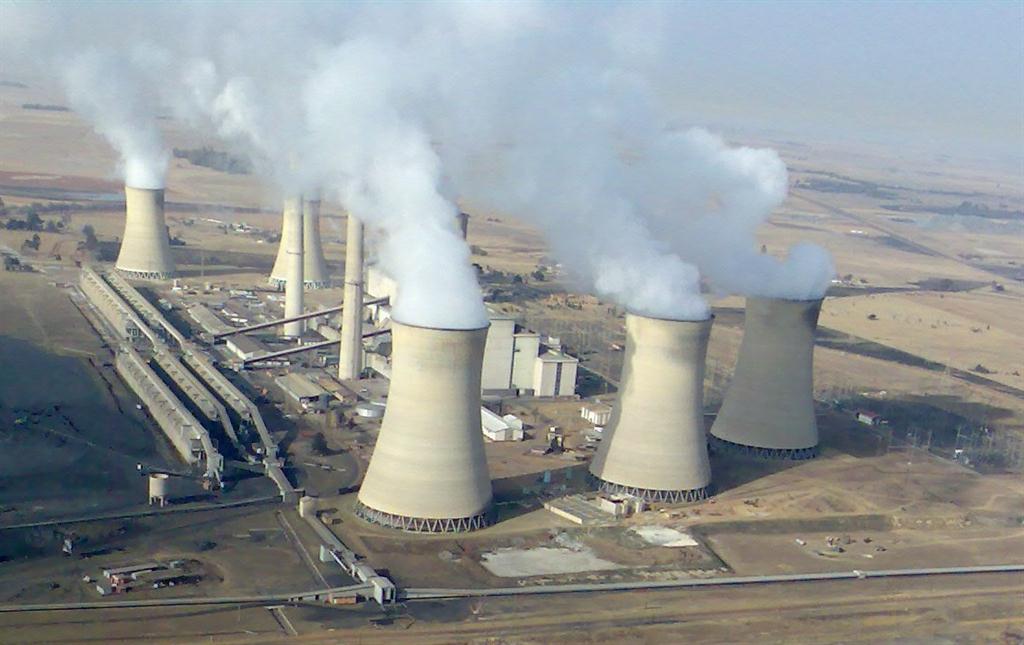SA regulator weighs Eskom price hike
South Africa’s electricity supplier wants increases of at least 15% for each of the next three years.
NAMPA/ANA
As the National Energy Regulator of South Africa (Nersa) on Monday began public hearings on Eskom's tariff increase application, pressure group SAFCEI suggested that the utility was not playing open cards on its costs in order to perpetuate its reliance on coal-fired plants.
The South African Faith Communities Environment Institute's (SAFCEI) Liz McDaid said she believed Eskom was under selling the cost of generating coal-based power, by not fully declaring all cost factors involved in its plants in its motivation for an annual 15% price hike.
In contrast, it was stating all costs involved in renewable energy, creating a slant towards the status quo of coal reliance. McDaid said amid concerns that the company could fail, with disastrous consequences for the economy, it should be noted that Eskom had already failed the majority of South Africans.
"I know of households where the stove is now an ornament," she told the hearings in Cape Town.
McDaid said it would be disingenuous to ask South Africans to make further sacrifices to keep Eskom continuing in its current fashion, on the basis that corrupt management had been replaced and this would resolve the company's woes. Instead she called for a rethink of how Eskom operates and said coal plants should be shut down, and replaced by a network of smaller, renewable plants.
The Organisation for Undoing Tax Abuse (Outa) also submitted that Eskom's operations were unsustainable, accusing the company of effectively using open cycle gas turbines for baseload supply, at huge cost to the consumer.
Ronald Chauke, Outa's spokesman on energy, argued that Eskom did not deserve tariff increases and said it would be charitable of Nersa to grant the utility inflation-related increases.
He said Eskom should find ways of saving costs, including cutting its staff and actively exploring ending ruinous coal deals entered into during the administration of former president Jacob Zuma.
"The public should not have to pay the price for Eskom's corruption and poor leadership."
Carl Opperman from Agri Western Cape told Nersa that the requested increases would prove debilitating to the province's farming community as "a price-taker" sector and put at risk food security.
Eskom is demanding a 15% a year increase for 2019 through to 2021. The Cape Chamber of Commerce and Industry said last week it was false to assume that this amounted to a 45% tariff hike over three years.
"Nersa has already granted an increase of 4.41% and when we add this to 15% we are already looking at an increase of nearly 20% in year one.
“The next 15% increase will be applied to a tariff that has already been increased and the third 15% increase will apply to a tariff that has already been increased twice so the total increase over three years will be nearly 59% and not the 45% that has been reported," the chamber said.
As the National Energy Regulator of South Africa (Nersa) on Monday began public hearings on Eskom's tariff increase application, pressure group SAFCEI suggested that the utility was not playing open cards on its costs in order to perpetuate its reliance on coal-fired plants.
The South African Faith Communities Environment Institute's (SAFCEI) Liz McDaid said she believed Eskom was under selling the cost of generating coal-based power, by not fully declaring all cost factors involved in its plants in its motivation for an annual 15% price hike.
In contrast, it was stating all costs involved in renewable energy, creating a slant towards the status quo of coal reliance. McDaid said amid concerns that the company could fail, with disastrous consequences for the economy, it should be noted that Eskom had already failed the majority of South Africans.
"I know of households where the stove is now an ornament," she told the hearings in Cape Town.
McDaid said it would be disingenuous to ask South Africans to make further sacrifices to keep Eskom continuing in its current fashion, on the basis that corrupt management had been replaced and this would resolve the company's woes. Instead she called for a rethink of how Eskom operates and said coal plants should be shut down, and replaced by a network of smaller, renewable plants.
The Organisation for Undoing Tax Abuse (Outa) also submitted that Eskom's operations were unsustainable, accusing the company of effectively using open cycle gas turbines for baseload supply, at huge cost to the consumer.
Ronald Chauke, Outa's spokesman on energy, argued that Eskom did not deserve tariff increases and said it would be charitable of Nersa to grant the utility inflation-related increases.
He said Eskom should find ways of saving costs, including cutting its staff and actively exploring ending ruinous coal deals entered into during the administration of former president Jacob Zuma.
"The public should not have to pay the price for Eskom's corruption and poor leadership."
Carl Opperman from Agri Western Cape told Nersa that the requested increases would prove debilitating to the province's farming community as "a price-taker" sector and put at risk food security.
Eskom is demanding a 15% a year increase for 2019 through to 2021. The Cape Chamber of Commerce and Industry said last week it was false to assume that this amounted to a 45% tariff hike over three years.
"Nersa has already granted an increase of 4.41% and when we add this to 15% we are already looking at an increase of nearly 20% in year one.
“The next 15% increase will be applied to a tariff that has already been increased and the third 15% increase will apply to a tariff that has already been increased twice so the total increase over three years will be nearly 59% and not the 45% that has been reported," the chamber said.





Kommentaar
Republikein
Geen kommentaar is op hierdie artikel gelaat nie